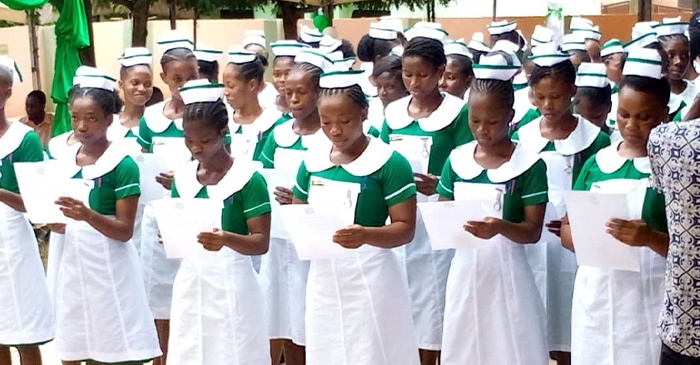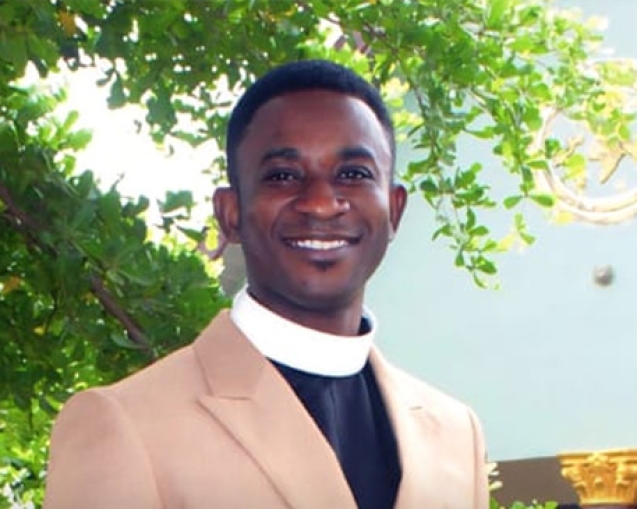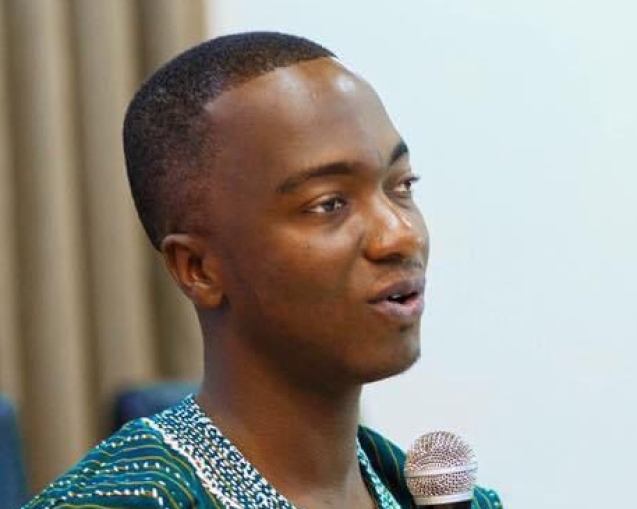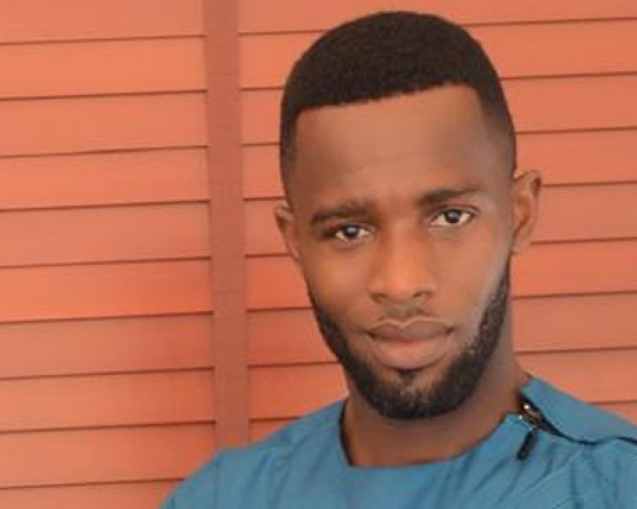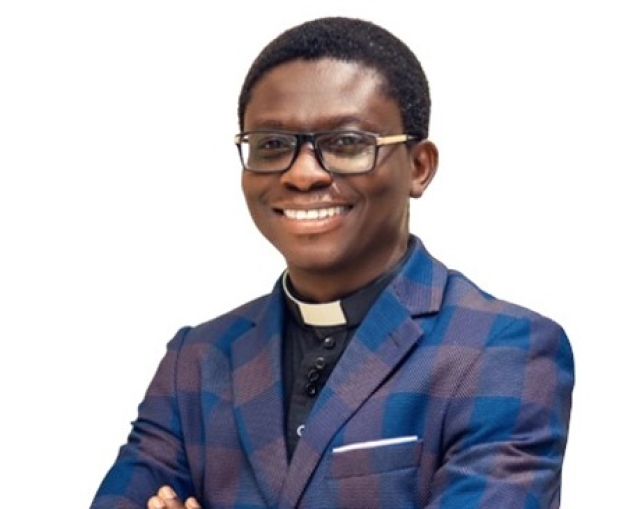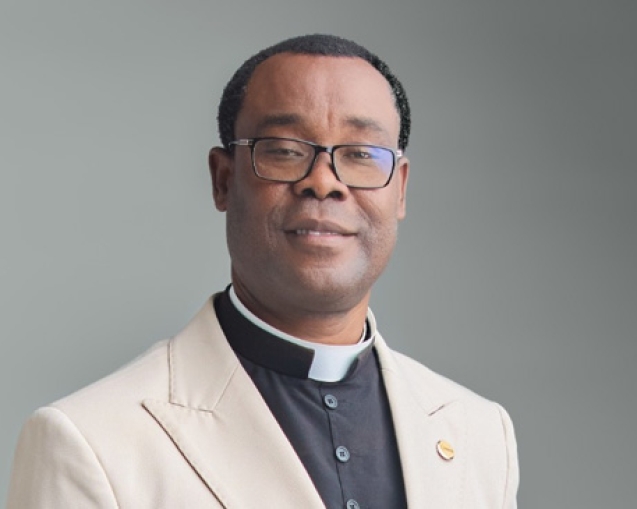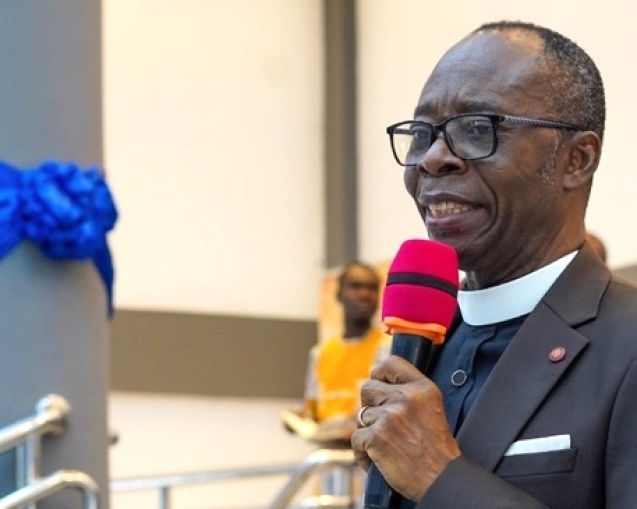The General Secretary of The Church of Pentecost, Apostle Alexander Nana Yaw Kumi-Larbi, has urged health workers to see their profession as a call to serve mankind.
According to the General Secretary, health workers, especially nurses and midwives, must endeavour to treat every patient as their own relative, thereby providing the best health care possible to them.
“As understood by Florence Nightingale, nurses must see their work as a calling aimed to save lives,” he said.
Apostle Kumi-Larbi said this on Saturday, April 23, 2022, during the first matriculation and inauguration of Flosam Institute of Nursing, Midwifery and Allied Science, located at Suhum in the Eastern Region.
Speaking at the event, Apostle Kumi-Larbi said that despite the challenges in the health sector such as the low doctor-to-patient ratio due to limited health training facilities, nurses could offer their best for the country.
He urged them to work diligently in the fear of the Lord which, he believed, would help boost the confidence people have in the health sector.
He, however, called on the government to consider paying the allowances of nursing students in private schools just as it is done in public nursing schools without any discrimination.
“How can the government give allowances to the public sector nursing students, leaving out private sector students, while they are all trained to work at the same government hospitals,” he questioned.
Referring to Matthew 25:31-46, he reiterated that Christians are the light of the world, therefore, when the opportunity to help people comes forth, they should not relent.
He charged Christians to demonstrate godly characters wherever they find themselves.
“Work hard, be loyal, productive and maintain integrity at all times and places,” he noted.
Apostle Kumi-Larbi noted that there will be accountability for the resources God has given all persons on the day of judgement.
“For those who will use the resources for themselves will be classified as goats, while those who used it to help their brothers will be classified as sheep. These people will inherit Heaven. Therefore, we must use what we have to help others in order to please God,” he concluded.
Dr. Paul Doku, Vice Dean for the School of Nursing, University of Cape Coast, called on the government to support private nursing schools.
According to him, the private sector plays a critical role in employing majority of Ghanaians, therefore it is expedient for them to be supported.
He entreated health training and tertiary institutions to offer global and 21st-century skills to their students. This, he said, will help them to be relevant in the global market as trends keep changing.
“Knowledge is good, however, knowledge without character becomes very dangerous. Therefore, you must remember the pledges that you have taken and inculcate them in your work. This will make you a nurse of good character who will be useful to the nation,” he pointed out.
On her part, Dr. Christian Asiedu, Founder of Flosam Institute of Nursing, Midwifery and Allied Health Sciences, said that the institution aims at preserving the core values that have sustained the institution while preparing its students for the future.
She mentioned that the school is strategically creating innovative programmes in science and the nursing profession at large with the aim of inspiring students to live and serve globally, while promoting the advancement of the nursing profession.
The grand ceremony brought together personalities from the health sector, Christian and other religious leaders, chiefs, the media, among others.
Flosam Institute of Nursing, Midwifery & Allied Health Sciences is a private health training institution accredited by the Nursing and Midwifery Council of Ghana (NMC), and the National Accreditation Board (NAB). Being affiliated to the University of Cape Coast (UCC), its main aim is to train health professionals in Ghana and globally.
Report by Alex Nana Owusu Nkrumah.






